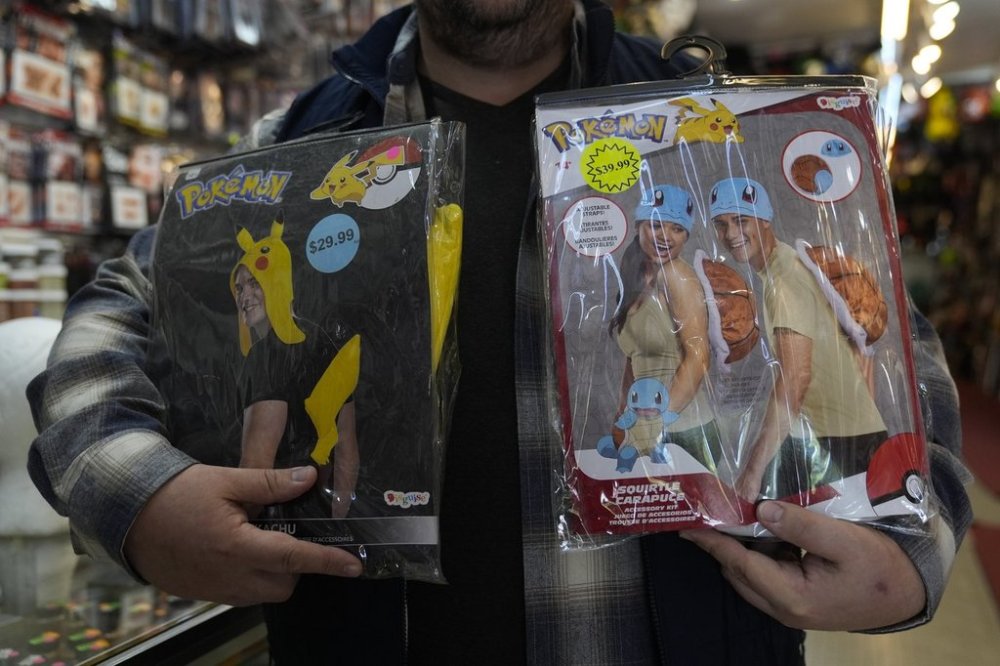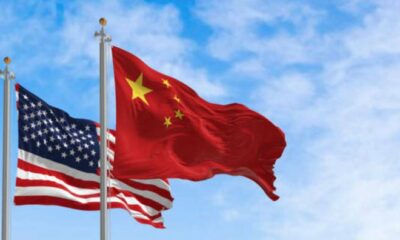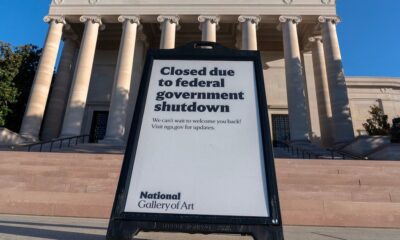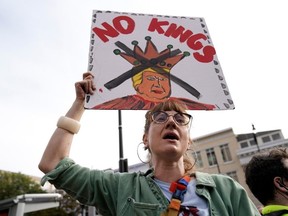World
Family-Owned Chicago Costume Adapts to Tariff Challenges This Halloween

As Halloween approaches, Chicago Costume is preparing for a challenging season due to recent tariff increases on imported goods. The family-owned costume shop, located in Chicago, Illinois, is adapting by reducing its new inventory and repurposing old stock to keep costs manageable for customers.
Tariffs Impact Inventory Decisions
Owner Courtland Hickey announced that he ordered 40% fewer packaged costumes this year. The increase in tariffs imposed by President Donald Trump on products imported from China has made new items significantly more expensive. Hickey emphasized that raising prices could deter customers, especially in a time when many are feeling the financial pinch.
“If people have less money in their pocket to spend, then costumes are going to be lower on their list,” Hickey stated.
To address the inventory shortfall, Hickey and his mother, Mary Hickey Panayotou, who founded Chicago Costume in 1976, have turned to a decade’s worth of unsold costumes and accessories. This creative effort involved sorting through thousands of items stored in backrooms and a warehouse, allowing them to repurpose vintage pieces into new sets.
For instance, a surplus of black robes has become the basis for various Halloween characters, including wizards and choir members. Additionally, some employees have taken on the task of sewing fabric scraps into accessories like miter headdresses, enabling customers to dress as Pope Leo, a notable figure from Chicago.
Broader Industry Effects
The impact of tariffs is not confined to Chicago Costume alone. Other small businesses, such as Trick or Treat Studios, have faced similar challenges. This company, known for designing masks and costumes based on popular horror films, laid off 15 employees earlier this year. Co-founder Christopher Zephro indicated that the business is shifting some production to Mexico to mitigate rising costs.
At Chicago Costume, which generates well under $1 million in annual sales, customers will notice fewer promotions and increased prices. Hickey has indicated that officially licensed children’s costumes and bulky sets will see price hikes of at least 25%. For example, a lederhosen costume now retails for $49.99, up by $10 from the previous year.
While Hickey initially saw tariffs as an opportunity to reclaim market share from larger retailers, he now acknowledges that the reality has been more challenging than expected. Big retail chains have responded to the changing landscape by flooding the market with inexpensive costumes, making it harder for independent shops to compete.
Despite these difficulties, Hickey remains optimistic about the future of independent costume shops. “It’s been a lot harder than I hoped, but I still believe that optimism, adaptability, and differentiation are what will keep independent costume shops like us alive,” he explained.
To ensure year-round revenue, Chicago Costume caters to cosplay fans and themed parties. Additionally, the Hickey-Panayotou family has diversified its operations by making mascot costumes for local sports teams like the Chicago Bulls and acquiring a theatrical services company with a rich history dating back to 1886.
As the season unfolds, customers like Damien Johnson, a long-time patron whose birthday coincides with Halloween, are adjusting their spending habits. Johnson plans to spend around $90 on his costume this year, a significant reduction compared to previous years when he would spend as much as $300.
In a time of financial uncertainty, Chicago Costume’s emphasis on sustainability and creativity may help it navigate the complexities of the current marketplace while continuing to provide unique costumes for Halloween enthusiasts.
-

 World3 months ago
World3 months agoScientists Unearth Ancient Antarctic Ice to Unlock Climate Secrets
-

 Entertainment3 months ago
Entertainment3 months agoTrump and McCormick to Announce $70 Billion Energy Investments
-

 Science3 months ago
Science3 months agoFour Astronauts Return to Earth After International Space Station Mission
-

 Lifestyle3 months ago
Lifestyle3 months agoTransLink Launches Food Truck Program to Boost Revenue in Vancouver
-

 Technology2 months ago
Technology2 months agoApple Notes Enhances Functionality with Markdown Support in macOS 26
-

 Top Stories7 days ago
Top Stories7 days agoUrgent Update: Fatal Crash on Highway 99 Claims Life of Pitt Meadows Man
-

 Sports3 months ago
Sports3 months agoSearch Underway for Missing Hunter Amid Hokkaido Bear Emergency
-

 Politics2 months ago
Politics2 months agoUkrainian Tennis Star Elina Svitolina Faces Death Threats Online
-

 Technology3 months ago
Technology3 months agoFrosthaven Launches Early Access on July 31, 2025
-

 Politics3 months ago
Politics3 months agoCarney Engages First Nations Leaders at Development Law Summit
-

 Entertainment3 months ago
Entertainment3 months agoCalgary Theatre Troupe Revives Magic at Winnipeg Fringe Festival
-

 Politics1 week ago
Politics1 week agoShutdown Reflects Democratic Struggles Amid Economic Concerns





















